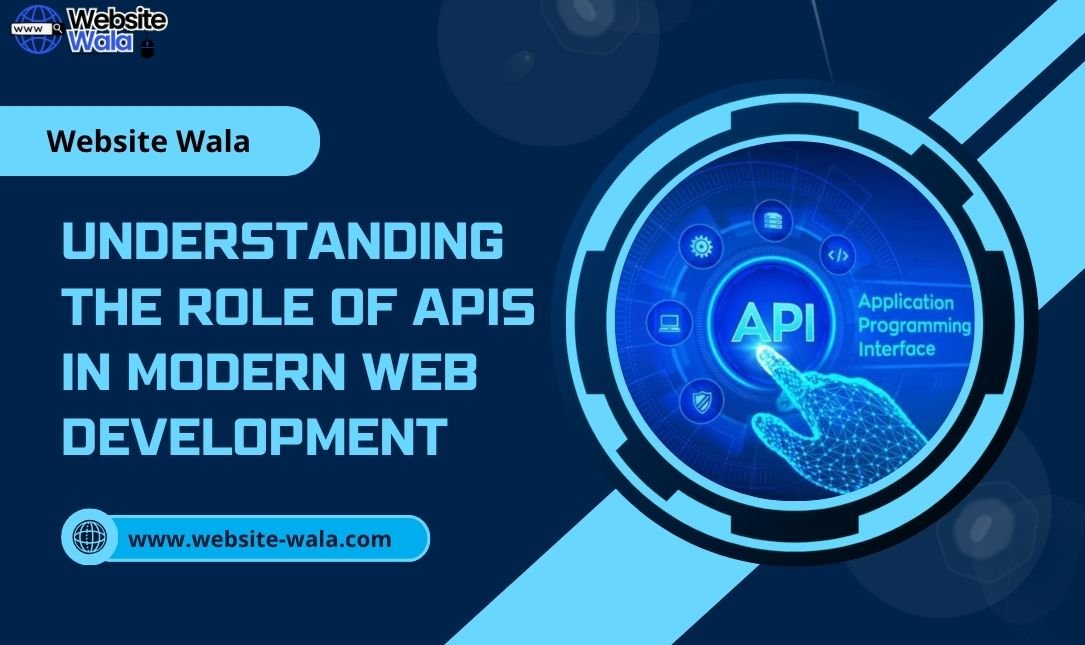
Discover Understanding the Role of APIs in Modern Web Development and how APIs drive software integration, data sharing, and modern technology.
Introduction: Understanding the Role of APIs in Modern Web Development
In today’s rapidly evolving digital landscape, understanding the role of APIs in modern web development is essential for developers, businesses, and technology enthusiasts alike. APIs, or Application Programming Interfaces, act as bridges that enable seamless communication between software systems. They facilitate data sharing across platforms, streamline software integration, and empower modern technology to deliver innovative solutions efficiently.
Whether you are a beginner exploring API basics or an experienced developer focused on API design, grasping how APIs function within web development can significantly enhance your software development strategies.
What Are APIs and Why They Matter
APIs are sets of rules and protocols that allow different software applications to communicate and exchange data. In the context of modern web development, APIs serve as connectors, enabling websites, mobile applications, and other software to interact seamlessly.
The benefits of APIs are immense:
-
Efficiency: APIs reduce redundant coding by allowing developers to use pre-built functionalities.
-
Flexibility: They enable developers to integrate multiple services and platforms effortlessly.
-
Scalability: APIs support growth by allowing systems to interact without significant modifications.
Understanding API basics is the first step toward recognizing their crucial role in software development.
How APIs Enable Communication Between Software Systems
A core function of APIs is enabling communication between software systems. For instance, when you use a travel booking website, APIs allow the platform to pull real-time flight information from airline databases. This data sharing ensures that users receive accurate, updated information without requiring manual intervention.
RESTful APIs, one of the most popular API types, provide a standardized way for web services to exchange information. They follow a stateless architecture, making them ideal for web development projects that require reliable and efficient communication between client and server applications.
The Role of APIs in Modern Web Development
Understanding the role of APIs in modern web development goes beyond basic functionality. APIs empower developers to:
-
Enhance User Experience: By connecting applications seamlessly, APIs allow users to enjoy integrated features like social media logins or payment gateways.
-
Enable Software Integration: APIs are vital for software integration, allowing businesses to connect CRM systems, databases, and third-party tools.
-
Promote Innovation: APIs encourage innovation by enabling developers to build on existing platforms rather than starting from scratch.
For businesses, leveraging APIs can result in faster product launches, reduced development costs, and improved customer satisfaction.
Key API Use Cases in Modern Technology
To truly grasp understanding the role of APIs in modern web development, it’s helpful to explore common API use cases:
-
Payment Processing: Services like PayPal or Stripe offer APIs that integrate payment capabilities directly into websites or apps.
-
Social Media Integration: APIs allow websites to fetch social media feeds or enable login using Facebook or Google accounts.
-
Cloud Services: APIs provide access to cloud storage, computing power, and AI services, enabling modern technology innovations.
-
Data Analytics: APIs facilitate the collection and analysis of data from multiple sources, promoting informed decision-making.
These examples highlight how APIs are central to software development and web development in the modern era.
Best Practices for API Design and Security
Effective API design is crucial for ensuring smooth communication between software systems. Good API design practices include:
-
Consistency: Maintain predictable endpoints and response structures.
-
Documentation: Provide clear and comprehensive guidelines for developers.
-
Versioning: Manage updates without disrupting existing integrations.
Equally important is API security. Protecting sensitive data and preventing unauthorized access should be a top priority. Techniques such as authentication tokens, encryption, and rate limiting are essential for secure software integration.
Benefits of APIs for Software Development
The benefits of APIs in modern web development extend across technical and business dimensions:
-
Time-Saving: Developers can leverage existing APIs instead of building new features from scratch.
-
Enhanced Collaboration: APIs facilitate teamwork across diverse platforms and tools.
-
Innovation and Agility: APIs support agile development by allowing rapid prototyping and iteration.
-
Global Reach: Businesses can expand their services globally by integrating with international APIs.
Understanding the role of APIs in modern web development helps organizations harness these advantages to build scalable, efficient, and user-friendly applications.
Challenges in API Implementation
While APIs offer numerous benefits, they also present challenges:
-
Compatibility Issues: Integrating APIs from multiple vendors can create conflicts.
-
Security Risks: Improperly secured APIs can expose sensitive data.
-
Maintenance: APIs require ongoing updates to ensure reliability and performance.
Overcoming these challenges involves adopting strong API design principles, prioritizing API security, and staying informed about best practices in software development.
The Future of APIs in Web Development
As modern technology evolves, APIs will continue to play a pivotal role in web development. Trends like microservices architecture, serverless computing, and AI-driven applications rely heavily on APIs for communication between software systems and data sharing.
Understanding the role of APIs in modern web development is no longer optional—it is a necessity for anyone involved in building, maintaining, or scaling software solutions. With robust API strategies, developers can create versatile applications that meet the demands of today’s digital ecosystem.
Conclusion
In conclusion, understanding the role of APIs in modern web development is crucial for leveraging the full potential of software development and modern technology. APIs enable communication between software systems, facilitate data sharing, and simplify software integration across diverse platforms.
By mastering API basics, focusing on API design, ensuring API security, and exploring common API use cases, developers and businesses can unlock the benefits of APIs to build efficient, innovative, and scalable applications.
The future of web development is interconnected, and APIs are the backbone of this interconnected digital world. Understanding their role ensures that software solutions are not only functional but also adaptable to the ever-changing technological landscape.























